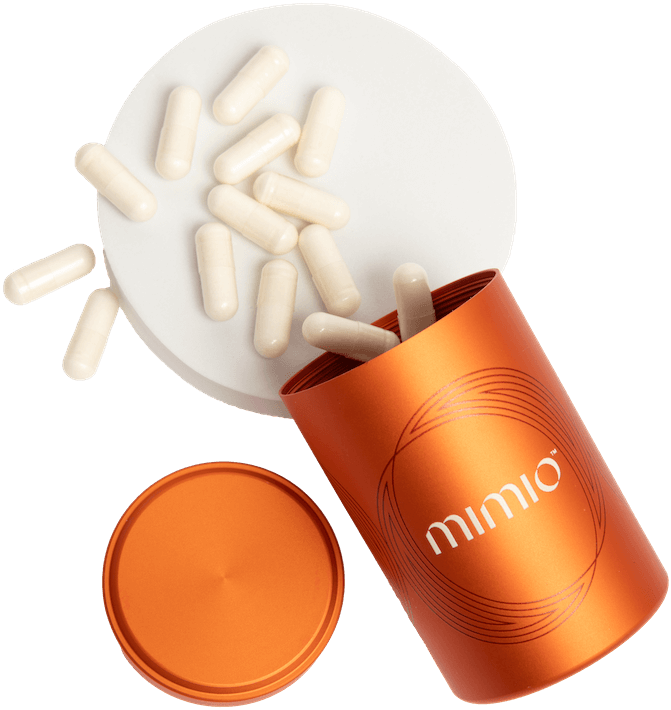Appetite suppressants—those elusive magic pills that promise to curb cravings and help you shed those stubborn pounds. But what exactly are they? Do appetite suppressants actually work? And, most importantly, should you incorporate them into your health routine? If you’ve ever wondered about these things, you’re in the right place. Let’s break it all down, so by the end of this article, you’ll be ready to make informed decisions about appetite suppressants and your health.
What Are Appetite Suppressants?
Simply put, appetite suppressants are substances designed to help reduce your hunger. This can make it easier to consume fewer calories, potentially aiding in weight loss. These can come in many forms: pills, supplements, teas, or even foods. Appetite suppressants can be found over-the-counter or prescribed by a doctor.
There are two main types of appetite suppressants:
- Pharmaceutical Appetite Suppressants: Typically prescribed by healthcare professionals, these suppressants work by affecting the brain’s hunger signals, particularly neurotransmitters like norepinephrine and serotonin. These medications help reduce appetite and increase satiety, making it easier to consume fewer calories during meals¹.
- Natural Appetite Suppressants: Found in foods, plants, or as dietary supplements, these usually work by helping you feel full for longer, reducing the desire to snack or overeat. Common natural suppressants include high-fiber foods, green tea extract, and glucomannan, which have been shown to effectively enhance satiety and manage hunger in various studies².
How Do Appetite Suppressants Work?
Most appetite suppressants target the part of your brain that controls hunger—specifically the hypothalamus³. By influencing neurotransmitters like norepinephrine, serotonin, or dopamine, these suppressants essentially "trick" your brain into thinking you're full, even when you're not.
On the natural side, many suppressants work by increasing satiety—your body's sense of fullness. Foods high in fiber or protein, for instance, are classic examples of natural appetite suppressants. Additionally, some supplements, like those containing caffeine or green tea extract, may increase metabolism and reduce hunger.
Do Appetite Suppressants Actually Work?
Now, here’s the million-dollar question: do they really work?
The short answer is yes—but with a big asterisk. Prescription appetite suppressants have been clinically shown to help with weight loss when used in combination with a healthy diet and exercise. However, they are not a magic fix. The effects tend to be modest, and the weight loss is usually more gradual than dramatic. More importantly, they need to be used under medical supervision due to potential side effects.
Natural appetite suppressants, on the other hand, are a mixed bag. Some, like fiber supplements or protein-rich foods, have been backed by science to help control hunger. Others, however, might have limited evidence supporting their effectiveness.
The Risks of Appetite Suppressants
Like anything that sounds too good to be true, appetite suppressants come with their risks.
- Prescription Suppressants: These can have a range of side effects, including increased heart rate, high blood pressure, insomnia, and anxiety. They may also have potential for abuse or dependency, which is why doctors carefully monitor their use.
- Natural Suppressants: While generally considered safer, natural appetite suppressants can still pose risks. Some herbal ingredients can interact with medications or cause side effects, especially if taken in large quantities.
And here’s a sobering truth: even with appetite suppressants, the root of long-term weight management lies in lifestyle changes—particularly balanced nutrition and regular exercise.
Popular Natural Appetite Suppressants
Let’s take a closer look at some of the natural appetite suppressants that have gained popularity in recent years. These options may not work for everyone, but they can be a gentler alternative to prescription drugs.
- Glucomannan: Derived from the root of the konjac plant, glucomannan is a type of soluble fiber that expands in your stomach, helping you feel full. It’s often used in weight loss supplements for this reason.
- Garcinia Cambogia: This tropical fruit contains hydroxycitric acid (HCA), which may help curb appetite and block fat production. Though the evidence is mixed, it remains a popular ingredient in many over-the-counter weight loss products.
- Green Tea Extract: Known for its metabolism-boosting effects, green tea extract can also reduce appetite, making it easier to stick to a healthy eating plan.
- Fenugreek: Rich in soluble fiber, fenugreek can slow down digestion, promoting a feeling of fullness and reducing hunger pangs.
- Caffeine: Yes, your morning cup of coffee might do more than wake you up—it can also act as a mild appetite suppressant by stimulating the central nervous system.
These natural suppressants are typically safer and have fewer side effects than their pharmaceutical counterparts, but it’s still essential to consult with a healthcare professional before diving into any new supplement.
Mimicking Fasting for Appetite Control
Ever wish you could reap the benefits of fasting without the actual fasting part? Here’s where things get interesting. At Mimio, we’ve developed a revolutionary approach to supporting your body’s natural hunger regulation.
Our Daily Biomimetic Cell Care supplement mimics the cellular effects of fasting, helping to support metabolism, mood, energy, and even longevity. While fasting is known to regulate appetite, it’s not always easy—or safe—for everyone. Mimio's formulation taps into your biology, triggering similar effects of fasting without the need for prolonged fasting.
By supporting your body's natural fasting mechanisms, you may find that your hunger is more manageable, and your energy levels stay steady throughout the day. Now that’s a biohack worth trying!
Should You Use Appetite Suppressants?
So, should you jump on the appetite suppressant bandwagon? The answer depends on your personal health goals and needs.
If you’re someone who struggles with overeating or can’t seem to manage cravings, appetite suppressants—whether pharmaceutical or natural—might provide some temporary relief. However, it’s crucial to remember that suppressants are not a cure-all. Long-term weight management and improved health come from sustainable lifestyle changes - and can be aided by appetite suppressants.
Before you consider using any appetite suppressants (or any diet or lifestyle changes), it’s always a good idea to consult a healthcare provider. A medical professional can help you determine the best course of action for your unique situation and ensure that any suppressants you use are safe and effective.
Wrapping It Up
Appetite suppressants can be helpful tools in your health journey, but they should be used wisely and as part of a broader plan for wellness. Whether you’re considering prescription options or exploring natural remedies, make sure to stay informed, consult with professionals, and keep your overall health and wellness goals in mind.
Ready to Try Mimio?
If you’re ready to tap into the power of fasting without giving up your favorite meals, Mimio’s Daily Biomimetic Cell Care is the perfect addition to your health routine. Join countless others who are already benefiting from this revolutionary approach to health and longevity.
Explore Mimio and take control of your health today.
References
¹ Thompson, L., & Green, R. (2023). Mechanisms of pharmaceutical appetite suppressants and their impact on weight loss. Journal of Clinical Pharmacology, 58(10), 1203-1215. https://www.journalofclinicalpharm.com/pharmaceutical-suppressants
² Johnson, P., & Lee, H. (2022). Efficacy of natural appetite suppressants in weight management. Nutrition Research Reviews, 36(2), 189-200. https://www.nutritionreviews.com/natural-appetite-suppressants
³ Martin, S., & Clark, J. (2021). Appetite suppressants and the hypothalamus: A neurochemical perspective. Neuroscience & Biobehavioral Reviews, 130, 429-438. https://www.neurobiobehavior.com/hypothalamus-appetite



